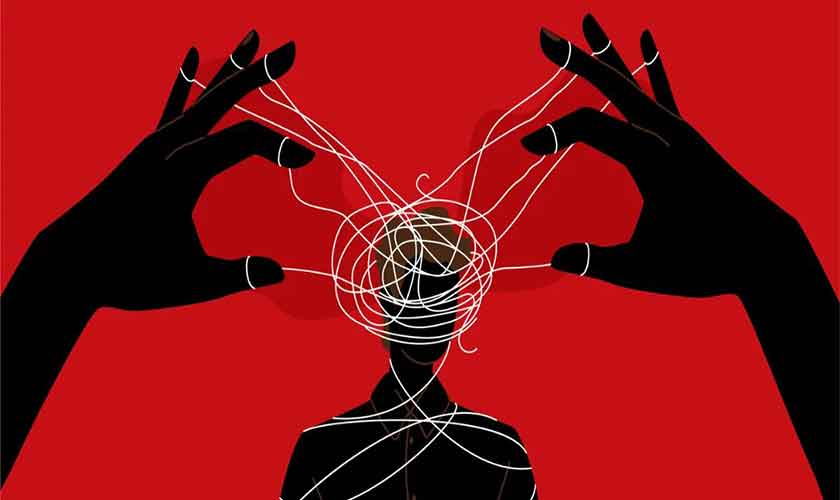
The Problem with Our Democracy
Democracy, at its core, is more than just a system of governance. It is a set of values and attitudes that must thrive within individuals, institutions, and public spaces. It shapes how we approach decisions, resolve disputes, and engage in conversations across every facet of life—our homes, schools, workplaces, social spaces, and political arenas. However, in our society, these democratic ideals are often undermined by deeply entrenched authoritarian attitudes.
Roots of Undemocratic Attitudes
From an early age, many of us are conditioned to conform rather than question. In households, parents often dismiss a child’s opinions or shut down discussions, demanding obedience instead of fostering dialogue. Schools and universities are no better. Teachers may view questions as insubordination, stifling curiosity and critical thinking. More importantly, they engrave this idea that people with fancy ideas, questioning attitudes, and curious minds are somehow ‘disrespectful’.
This conditioning carries into workplaces and public spaces, where those in authority—bosses, colleagues, or those with authority—often expect blind obedience rather than constructive feedback. The result is a society where individuals lack agency, their choices shaped not by personal reflection but by the decisions of authority figures. Whether it’s career paths, education, or political beliefs, young people are often handed a pre-approved script rather than encouraged to write their own.
Institutional Failures
Our institutions mirror these authoritarian tendencies. Political leaders, bureaucrats, and even members of the judiciary often operate as if they are above scrutiny. Politicians demand loyalty while restricting the flow of information under the guise of “protecting democracy.” Bureaucrats behave more like rulers than public servants, and any criticism of the armed forces is branded as a threat to national security.
Adding to this is the issue of dynastic politics, where leadership is often inherited rather than earned. These “nepo babies” lack accountability and often fail to address the real concerns of the public. The result is a leadership class that prioritizes power over progress, leaving citizens disillusioned with politics.
Challenges with Left and Liberal Spaces
Even in spaces that claim to champion democracy, such as leftist and liberal organizations, undemocratic practices abound. Many of these groups are led by individuals who hold power for life, often passing it on to their descendants or close acquaintances. Discussions and voting are mere formalities, used to create an illusion of participation.
This culture of authoritarianism is reflected in how dissent is treated. Instead of encouraging debate, these spaces stifle criticism, mirroring the same attitudes they claim to oppose. Leaders are often shielded from scrutiny, and financial transparency is almost nonexistent. The result is a hollow version of democracy, where the very principles of accountability and equality are disregarded.
Cultural and Social Intolerance
Beyond institutions, our broader culture also resists dissent and diversity of thought. Reverence for authority is deeply ingrained, whether it’s for religious scholars, bureaucrats, or political figures. Any attempt to challenge these figures is met with hostility. A mentor once shared a story of being asked to leave an event after politely correcting a misquote by a spiritual leader. This hostility to coarse-correction or alternative viewpoints reflects a society that prioritizes hierarchy over dialogue.
Even personal interactions often reveal these undemocratic tendencies. Engaging in constructive disagreement, especially online, can lead to abusive responses, as people are unaccustomed to having their ideas questioned. This inability to handle dissent fosters a culture where only those willing to endure hostility dare to speak out.
The Way Forward
If we are to strengthen democracy, we must begin by changing these deeply rooted attitudes. Institutions need to be held accountable, but the change must also happen at an individual level. Families, schools, and workplaces should nurture open dialogue, encouraging critical thinking and respect for differing opinions.
Democratic values must become a lived reality, not just a theoretical ideal. This requires fostering a culture of tolerance, where disagreement is not met with hostility but with patience and understanding. Leaders—whether in politics, organizations, or communities—must recognize that no one is infallible, and that constructive criticism is essential for growth.
We must also reclaim public spaces for genuine discourse. Access to discussions about politics, society, and culture should not be limited to elites or paywalls. Platforms for open, respectful dialogue need to be accessible to all, ensuring that every voice, especially those of the marginalized, is heard.
Conclusion
Democracy thrives on participation, dialogue, and dissent. Without these, it becomes a hollow shell, serving only the powerful. As individuals, we must challenge authoritarian attitudes in every sphere of life, starting with ourselves. By listening with patience, encouraging debate, and embracing criticism, we can rebuild the democratic spirit that our society so desperately needs.
Only then can we create a society where every voice matters, and every individual has the agency to shape their future.
 Muhammad Ali uses various mediums, including music and writing, to articulate his thoughts.
Muhammad Ali uses various mediums, including music and writing, to articulate his thoughts.



